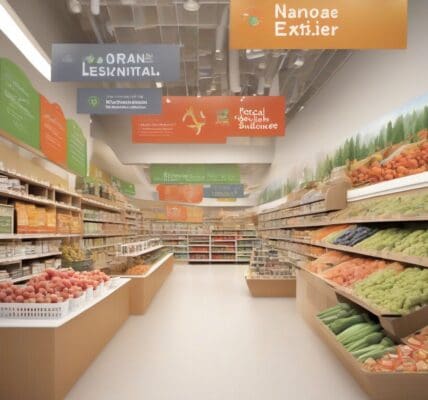The collaboration between Big Y Foods Inc. and the University of Massachusetts Amherst’s (UMass Amherst) Student Farming Enterprise Program is a noteworthy example of how retail and educational sectors can effectively work together to promote sustainability and support local agriculture. Since its inception in 2012, this partnership has thrived, providing fresh organic vegetables from student-run farms directly to Big Y locations in Massachusetts and Connecticut.
Adam Hession, the Director of Produce and Floral at Big Y, emphasizes the importance of local partnerships: “Our relationship with local farmers is a key point of differentiation that truly sets us apart. We are always looking for local farms to partner with to strengthen our connection to those communities.” This local sourcing not only ensures high-quality produce but also reduces transportation costs and environmental impact, aligning with consumer demands for sustainable practices.
This partnership stands as a model for supermarkets aiming to enhance their brand image while contributing to community welfare. Big Y has successfully integrated student farmers’ produce into their stores in areas like Northampton, Greenfield, and South Hadley, showcasing an assortment of vegetables that include cabbages, tomatoes, zucchinis, eggplants, and various squashes. By delivering fresh produce weekly, students gain hands-on experience while contributing to a real-world market.
The Student Farming Enterprise program itself operates under UMass Amherst’s Stockbridge School of Agriculture and focuses on teaching students comprehensive farm management techniques, from planting to harvesting, as well as lessons in wholesale retail and marketing. As Amanda Brown, director of the Agricultural Learning Center and senior lecturer in Sustainable Food and Farming, explains, “It’s a unique opportunity to have this amazing partnership with Big Y. Students not only get the experience of planning, planting, and harvesting the farm, but they also have the chance to learn about the wholesale retail and marketing side of the business.”
This partnership benefits Big Y by reinforcing its commitment to local sourcing while also appealing to the growing consumer base that prioritizes sustainability. In a competitive marketplace where large retailers are often criticized for their sourcing practices, such collaborations offer an edge. By supporting local agriculture and education, Big Y aligns its corporate responsibility initiatives with consumer values of sustainability and community enhancement.
Moreover, Big Y is one of the largest independently owned supermarket chains in New England, boasting numerous locations and employing over 12,000 associates. The scale of this operation means that the impact of their local sourcing program could be significant, potentially influencing other retailers to follow suit. Being ranked No. 74 on Progressive Grocer’s 2024 list of North America’s top retailers of food and consumables further substantiates their credibility and the impact of their initiatives.
For retailers looking to optimize their relationship with the community and enhance their product offerings, this partnership provides a case study. The operational success hinges not only on the synergy between local educational institutions and businesses but also on a focused commitment to fresh, local produce.
It’s important for retailers to not just stock these products but to tell the story behind them. Engaging marketing strategies that highlight the connection between Big Y and UMass Amherst can galvanize consumer interest and drive sales. Social media campaigns, in-store displays, and community events can serve as platforms to tell this story, providing transparency and fostering a deeper connection between consumers and the brands they support.
As consumers continue to prioritize sustainability and localism in their purchasing decisions, partnerships like that of Big Y and UMass Amherst will play a crucial role in the food retail landscape of the future. Retailers that can effectively leverage their relationships with local producers stand to benefit from an enhanced reputation, customer loyalty, and improved sales.
This collaboration not only supports the next generation of farmers but also helps Big Y establish itself as a leader in the movement towards sustainable and responsible grocery retailing. The future of retail clearly lies in these local connections.












